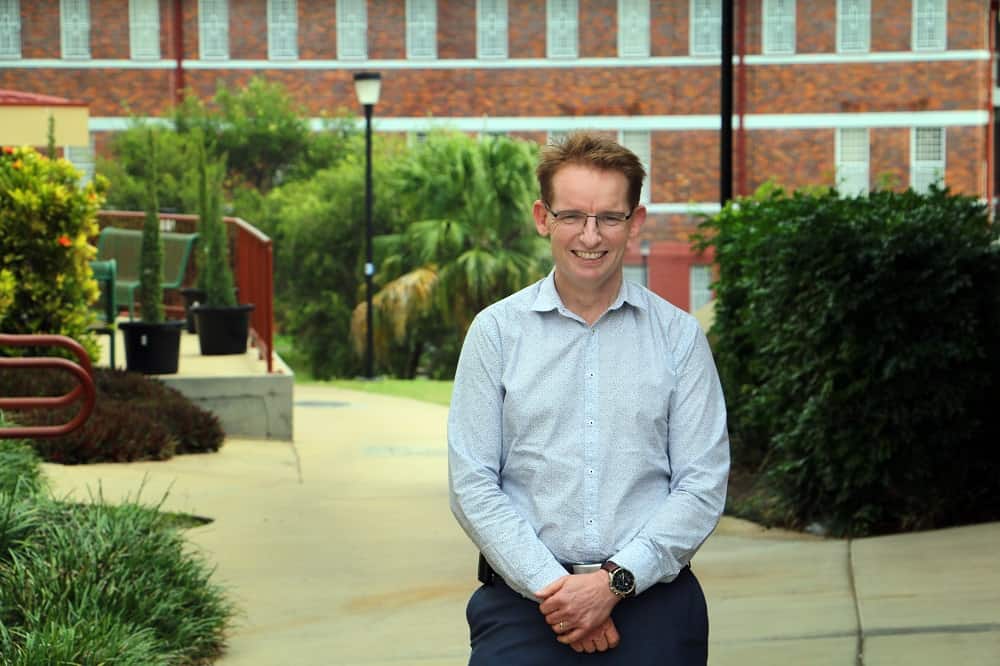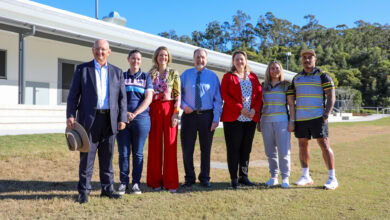
Associate Professor James Scott is a mental health researcher who strives to find both the causes and cure for mental illness.
He also does clinical work, caring for people suffering poor mental health.
A/Prof Scott is a principal researcher at the Queensland Centre for Mental Health Research at West Moreton Health. His work has led to significant developments in the potential screening and successful treatment options for people suffering psychosis, and has also helped put bullying on the world stage.
“Over the years I have seen so much childhood maltreatment, I have seen so much bullying and I have seen so many people with psychosis who are not getting better. So when I see something that could make a difference to a person’s health I think we have to grab it and explore it and see what is going on,” A/Prof Scott said.
It was only weeks after reading an article about auto-immune encephalitis and its link to psychosis that Professor Scott met with specialists from other areas of medicine to conduct one of his most important studies to date.
“I had been referred to a young man who had been unwell with psychosis for six or seven years. He had seen a number of other clinicians and I was giving a fourth opinion,” A/Prof Scott said.
“I had been reading about auto-immune encephalitis only a few weeks before he had come in. He was so unwell and I said to his mum ‘I don’t think there is much I can do to help your son but let’s check for this condition’, and sure enough he came back as positive for this auto-immune illness.
“He was treated with immunotherapy and got better. It was something I had never seen, it was miraculous.
“When you see the difference in someone it is just life-changing. I have seen a few people with this autoimmune encephalitis who were misdiagnosed with psychosis. They are back working, fully recovered, it’s just lovely.
“If we had not identified this I think they would still be having psychosis. Ultimately as a health professional that is why you go to work – to make a difference to people.”
A/Prof Scott recently won a Royal Australian and New Zealand College of Psychiatrists (RANZCP) Senior Research Award.
“It’s nice to get recognition but I don’t see it as a highlight,” A/Prof said.
“A highlight for me would be if we were able to successfully identify this five per cent of people with psychosis who would benefit from immunotherapy, and they received it and they got better.
“If I left my research career seeing that happen, that would be a highlight.
“If we could get programs in schools that could meaningfully reduce bullying, that would be a highlight. These are the sort of things that I think most people who stick at research are hoping to see – change.”
KEY RESEARCH AREAS
• Epidemiology – Bullying
Bullying was identified as one of several key modifiable risk factors which make a child or adolescent more likely to have a mental illness.
Using epidemiology, it was shown that independent of pre-existing mental health problems, bullying does cause mental illness, including anxiety and depression.
By partnering with QCMHR’s Global Burden of Disease research team, A/Prof and his colleagues successfully developed a scientific case for the Lead Investigators of the Global Burden of Disease Study to recognise bullying as a risk factor for mental illness in in March 2018.
Bullying is one of only three social risk factors (after childhood sexual abuse and intimate partner violence) included in the GBD.
Its inclusion in the GBD will be influence governments to recognise social factors that cause disease and implement targeted programs that are effective in reducing child and youth mental illness.
• Neuro-immunology – psychosis
Research has shown that up to five per cent of people admitted to hospital for their first episode of psychosis have an autoimmune illness where their body is producing antibodies that are attacking the brain and causing psychosis.
Patients in this group do not respond to traditional psychiatric treatment as they have an auto-immune illness, not a psychiatric illness. All patients that were given immunotherapy treatment recovered from psychosis.
• Childhood maltreatment and parenting skills training
Research focused on the way children are raised as a risk factor for developing childhood and youth mental illness.
Research collated in the Disease Control Priorities Policy Document for the World Bank identified investment in parenting skills training as the number one recommendation to prevent mental illness in children.
• Clinical trials
QCMHR teams are currently involved in four clinical trials identifying interventions for people with psychosis and schizophrenia, including Social Cognition and Interaction Therapy as well as sodium benzoate, a food preservative.

